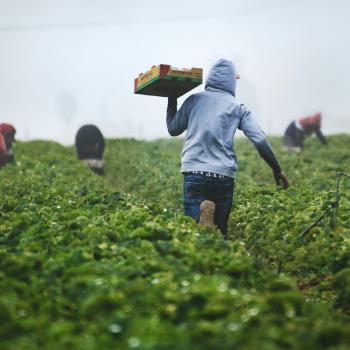Expanding Food Access: Training Farmers to Accept SNAP for Farmers Markets
By Juliana Ramirez
Our team of six undergraduate students launched a project focused on addressing food insecurity by bridging the gap between local farmers and low-income communities. Many small-scale farmers face challenges in accepting SNAP (Supplemental Nutrition Assistance Program) benefits due to technical barriers, lack of training, or limited resources. At the same time, families relying on SNAP often struggle to access affordable, fresh produce. Our project set out to create a training program to equip farmers with the knowledge and tools to accept SNAP, helping to make nutritious food more accessible to underserved populations.
We designed our work based on successful models from other regions while tailoring the program to the needs of farmers' markets in our area. Our goals were to develop training materials, host workshops, and build a sustainable system for ongoing support so farmers could successfully integrate SNAP payment processing into their operations. Lessons Learned
One of our biggest lessons was recognizing how complex food access issues are. While it may seem straightforward to “just train farmers,” we quickly learned that systemic barriers—such as navigating federal regulations, understanding EBT technology, and managing costs—play a large role in whether SNAP acceptance is feasible. This pushed us to think beyond the training itself and explore how to support farmers in the long-term.
Another key takeaway was the importance of centering community voices. Even though we were not working directly with a formal community partner, we grounded our project in conversations with farmers, public health experts, and existing food access programs. We learned that sustainable change comes from collaboration and co-creation rather than imposing solutions.
As a team, we also grew in our understanding of leadership. We learned to adapt, share responsibilities, and lean into each other’s strengths when faced with challenges. Concepts from our leadership coursework, such as the LENS model and asset-based community engagement, were crucial in helping us approach this project thoughtfully and ethically.
Outcomes and Next Steps
Our project resulted in a pilot training framework for farmers interested in becoming SNAP-certified. We developed educational materials and identified key steps for integrating SNAP acceptance into free farmers markets. This framework will allow future students and local organizations to build on our work, ultimately expanding access to fresh produce for SNAP recipients and creating new revenue streams for small farmers.
Moving forward, we hope to connect with local markets and food justice organizations to implement the training model in full and collect data on its impact. This experience deepened our commitment to food equity and gave us valuable insights into creating sustainable, community-driven solutions.
